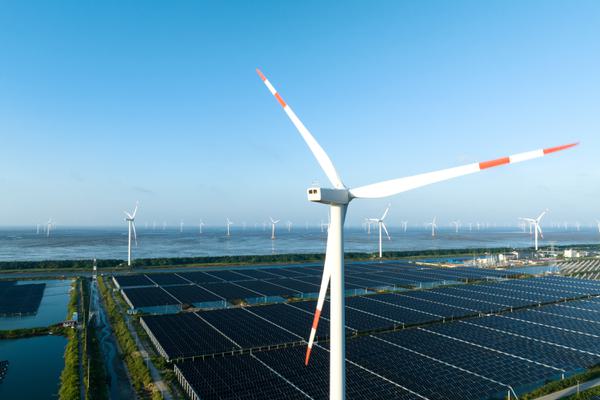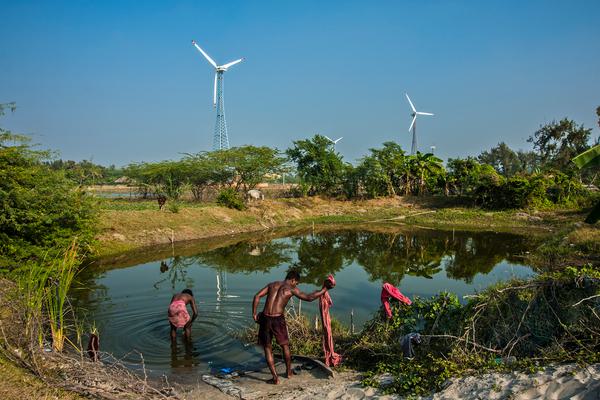The state of just transitions in the cocoa sector
29 February 2024

The mounting impacts of the climate crisis are seen starkly in the lives of agricultural workers, most often in developing countries. Discussions around just transitions understandably focus on energy, but agriculture and deforestation are also huge factors in the transition to a low carbon economy.
In recent months, farmers from different sectors and countries have protested over a variety of issues including low incomes, due in part to droughts and wildfires that significantly affect production and revenue. Growing concerns over European governments’ plans to cut diesel subsidies have also been the subject of protests by agricultural workers.
Ultimately, if people most affected by the inevitable green transition don’t see it as just, then even policies that might make a difference in addressing climate change face enormous risks of rejection and failure.
Earlier this month, these issues were discussed during the annual World Cocoa Foundation Partnership Meeting I was invited to speak at on just transitions in cocoa. This was one of the first industry conversations of its kind, and took place during Chocoa Week in Amsterdam, the annual gathering of cocoa and chocolate producers dedicated to sustainable practices.
Here is some of what I heard and learned.
1. Just transition in the sector IS happening (even though the term is not yet widely used).
An increasing number of farmers, companies and governments shared some of the crucial steps they are taking to ensure that urgent climate actions are viewed from the perspectives of the people who are most affected by them, and therefore vital to success.
As a starting point, reflections emphasised transparency and monitoring efforts. For example, the Just Transition Resource Platform suggests companies report on their actions with just transitions in focus, including publishing just transition action plans and reporting on their progress based on KPIs.
However, it was particularly heartening to hear how the priority needs to be a focus on how to go beyond assessing potential human rights risks in the cocoa supply chain to understanding and addressing root causes of complex and connected issues such as deforestation or child labour.
2. Cocoa farmers carry too many burdens in transitions
Despite the commitments and actions being taken by some companies and governments, cocoa farmers still carry a heavy burden of meeting sustainability-related legislative requirements such as the EU Deforestation Regulation (EUDR), and need to remain competitive and resilient while also managing the severe impacts of climate change on their industry. Making the cocoa sector more sustainable will require expanded resources and training for regenerative farming practices, and farmers need more income stability and ongoing support to be able to evolve their businesses in this way.
Equally important, companies and governments will have to find more effective means of engagement and build partnerships to ensure that farmers' voices are continually heard and represented in environmental initiatives. Farmers hold the knowledge and the expertise needed to make transitions happen in ways that respect their rights and long term interests. Their agency has to be a central concern of all actors. By engaging in face-to-face dialogues, and new forms of collaboration, policy makers can build trust with cocoa farmers, creating climate action policies that respond to their needs.
3. Farmers’ needs must be at the centre of new EU deforestation regulation
This year, EU-based companies will have to focus on ensuring compliance with the EU Deforestation Regulation (EUDR). The law covers seven commodities, including cocoa, and requires these to be ‘deforestation-free’ to be imported into the EU. To implement the EUDR successfully, several actors across the value chain, including cocoa farmers, will need to work together to gather relevant data and meet these new legal requirements.
Regulation is often abstract. It is critical that farmers in producing countries are supported to understand what the objectives are, what exactly is needed from them, and what support is available to achieve these targets. Guidance will be needed for all the stakeholders in scope of the law.
4. Responsible sourcing and trading are crucial
Responsible sourcing and responsible trading remain crucial elements of compliance with sustainability-related regulation as well as just transition-related action plans. To source and trade commodities responsibly, companies need to integrate human rights and environmental due diligence in their business operations. Many manufacturers and commodity traders are already using risk assessments and supplier screening processes to identify potential issues of concern such as addressing adverse impacts linked to the presence of conflict-affected and high risk areas in the supply chain. However, relevant data is often hard to obtain, and companies may simply choose to stop sourcing from countries or suppliers in order to avoid potential compliance issues, instead of contributing to longer term capacity building that supports farmers and their communities.
Sourcing companies can avoid de-risking and walking away from challenges by implementing effective due diligence that identifies potential risks as well as prevents or mitigates negative impacts on people and the planet in their value chain. Existing frameworks like the UN Guiding Principles on Business and Human Rights (UNGPs) are critical tools in this work, and will assist not only in complying with relevant legislation, but also in developing scalable risk management strategies. Tools such as the Guidance for the Commodity Trading Sector on Implementing the UNGPs are of particular value to those in the trading sector who are still new to expectations relating to responsible business conduct, and how it relates to climate action.
There is growing awareness of the importance and urgency of just transitions across industries, but more work and focused commitment is needed. IHRB’s Just Transitions programme is seeking to contribute to a wider understanding of the concept and advance joint efforts for the benefit of people and planet.



